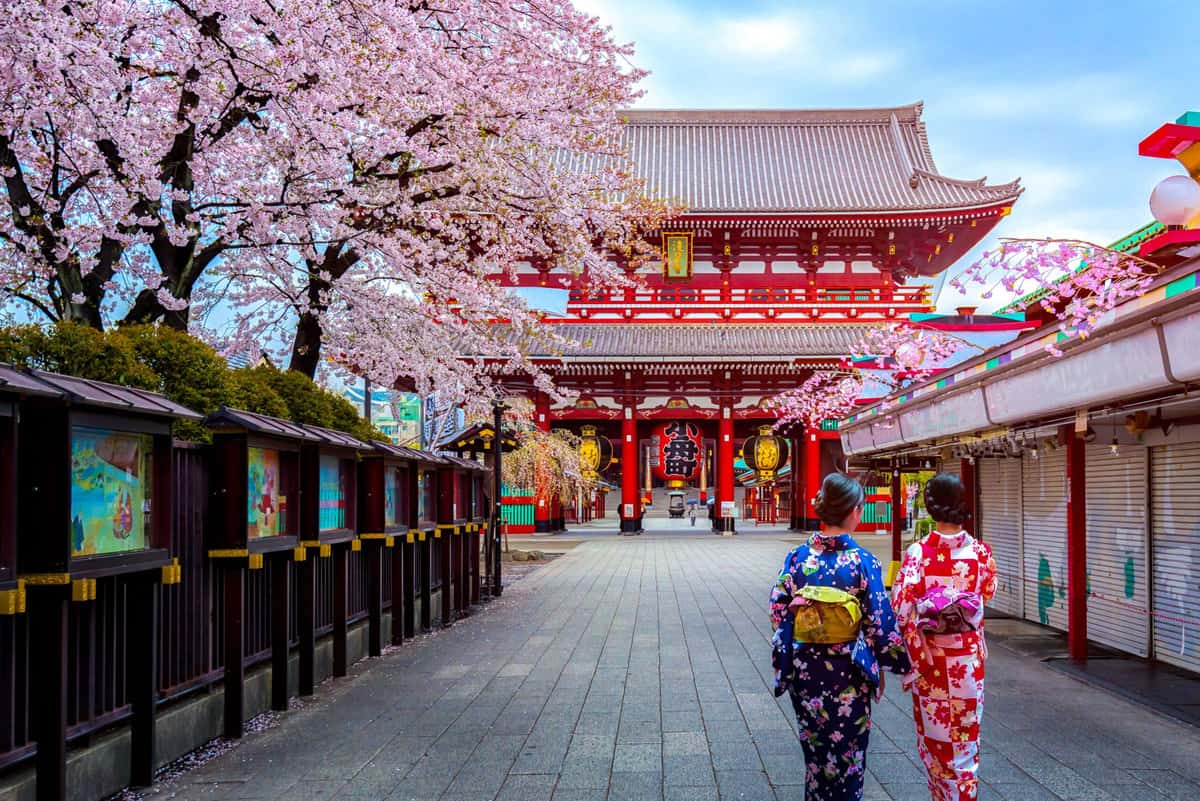Hey fellow travelers! If you’re planning to explore Tokyo make sure to mark Asakusa on your map to visit Senso-ji. This isn’t another tourist attraction; it’s a captivating experience that takes you back in time filled with the aroma of incense ancient customs and the vibrant ambiance of Tokyos past. Grab your shoes charge up your camera and lets virtually wander through the timeless streets as we visit Senso ji.
Contents
First things first: What makes a visit to Senso ji so special?
Imagine a place that even the gods themselves would want to spend time there. Well that place is Senso ji in Tokyo. It holds the title of being Tokyos temple. According to legend two brothers once discovered a statue of Kannon the goddess of mercy while fishing in the Sumida River. To honor her return each time they cast her away like a boomerang they built this temple. Pretty amazing story, right?
When is the best time for a stroll around Senso ji?
The truth is—anytime is a time to visit Senso ji. However if you prefer avoiding crowds of tourists I recommend going in the morning or late, in the evening when it tends to be quieter and more serene.
Moreover the temple looks absolutely stunning when it is illuminated during the night. Both the cherry blossom season and autumn, with their breathtaking leaves are not only beautiful but incredibly popular.
Reaching Senso ji is a breeze
Hop on the Ginza Subway Line and head to Asakusa Station. Once you’re there simply follow the crowd, towards the temple. Tokyos public transportation system is fantastic so you don’t need to worry about getting lost.
The enchantment starts at Kaminarimon Gate
Welcome to the Thunder Gate! It’s not a metal band; it’s actually the gate of Senso ji and its truly impressive. The large lantern here is iconic. Be prepared to navigate through a crowd of people taking selfies. However it’s all part of the fun experience.
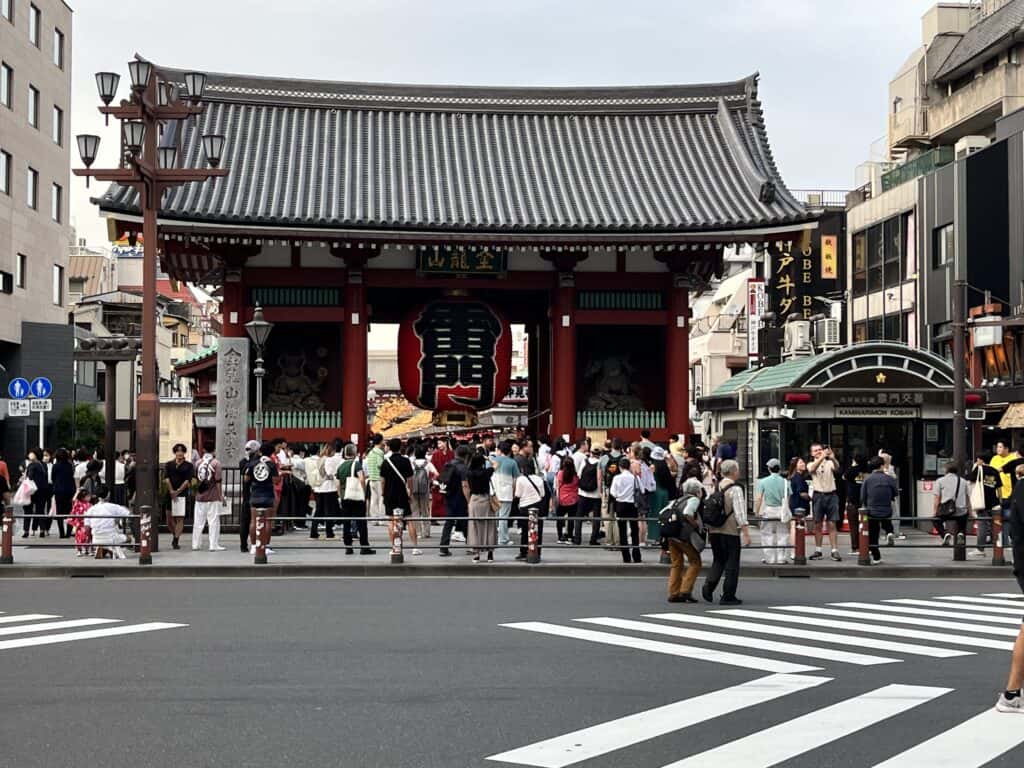
Explore Nakamise Street
This is the place to put your shopping skills to the test. Nakamise Street offers a range of shops selling everything from those Japanese snacks you’ve seen on YouTube to souvenirs that proudly shout “I’ve been, to Tokyo!” Treat yourself to some tea ice cream or grab a unique samurai sword umbrella. It’s an exciting experience for all your senses.
[metaslider id=”11498″]
Hozomon Gate and the Five-Story Pagoda
After strolling through Nakamise you’ll come across the Hozomon Gate, which leads you to the hall of the temple. Nearby there’s a captivating five story pagoda that truly mesmerizes, especially when its beautifully illuminated, during nighttime.
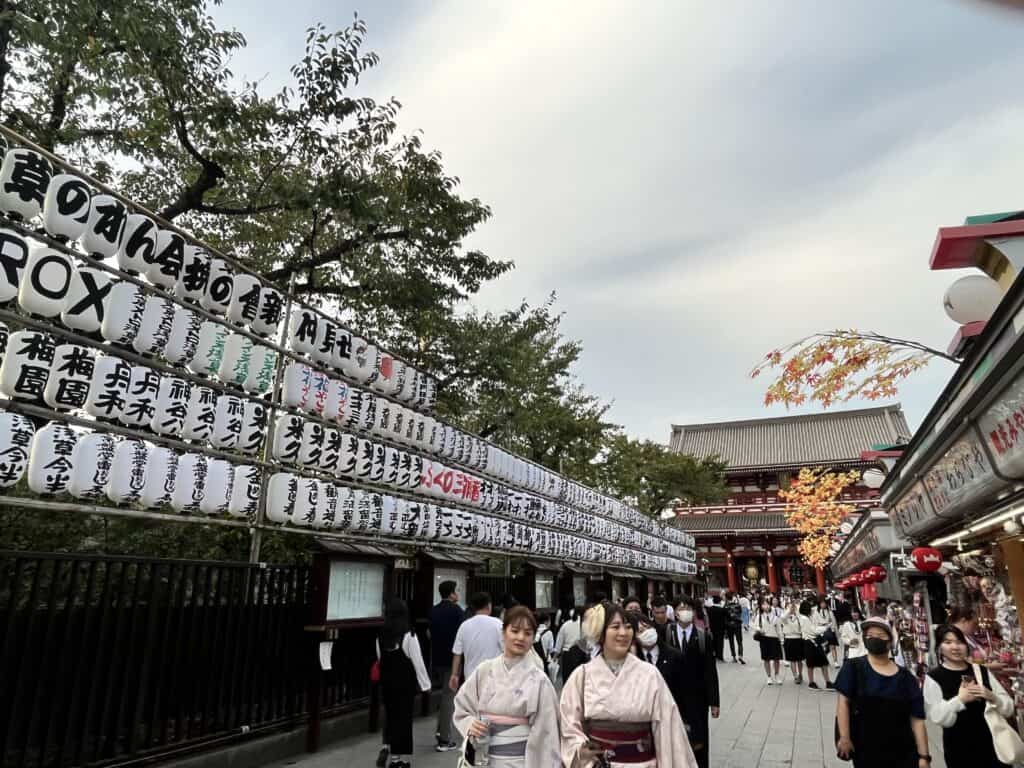
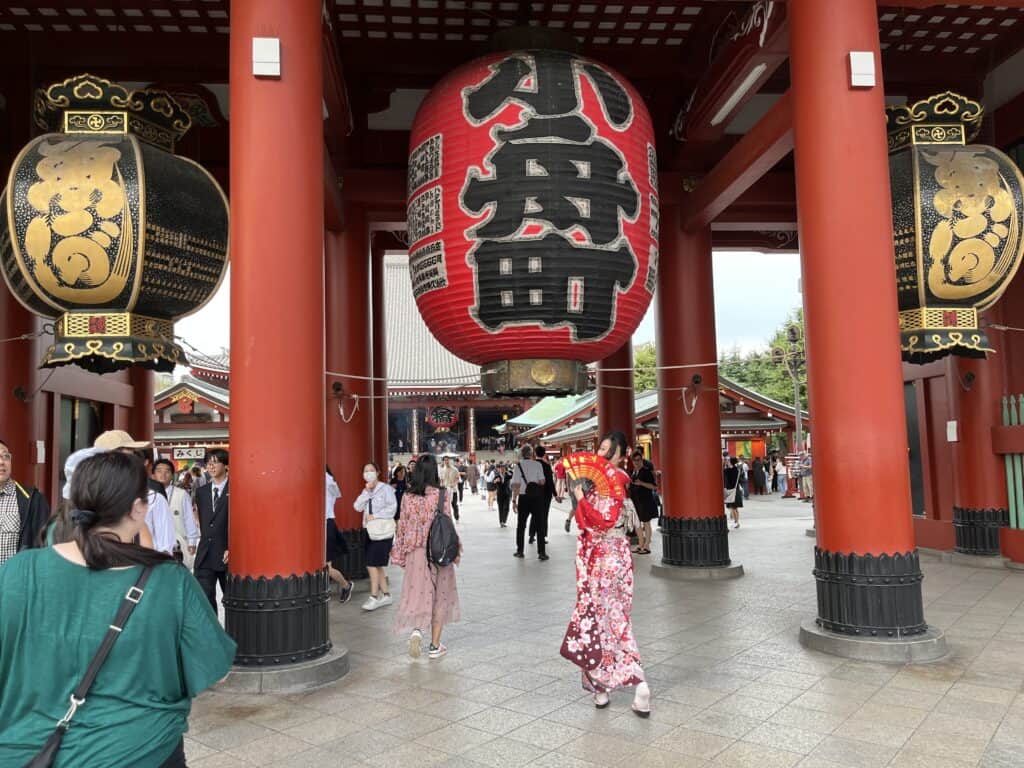
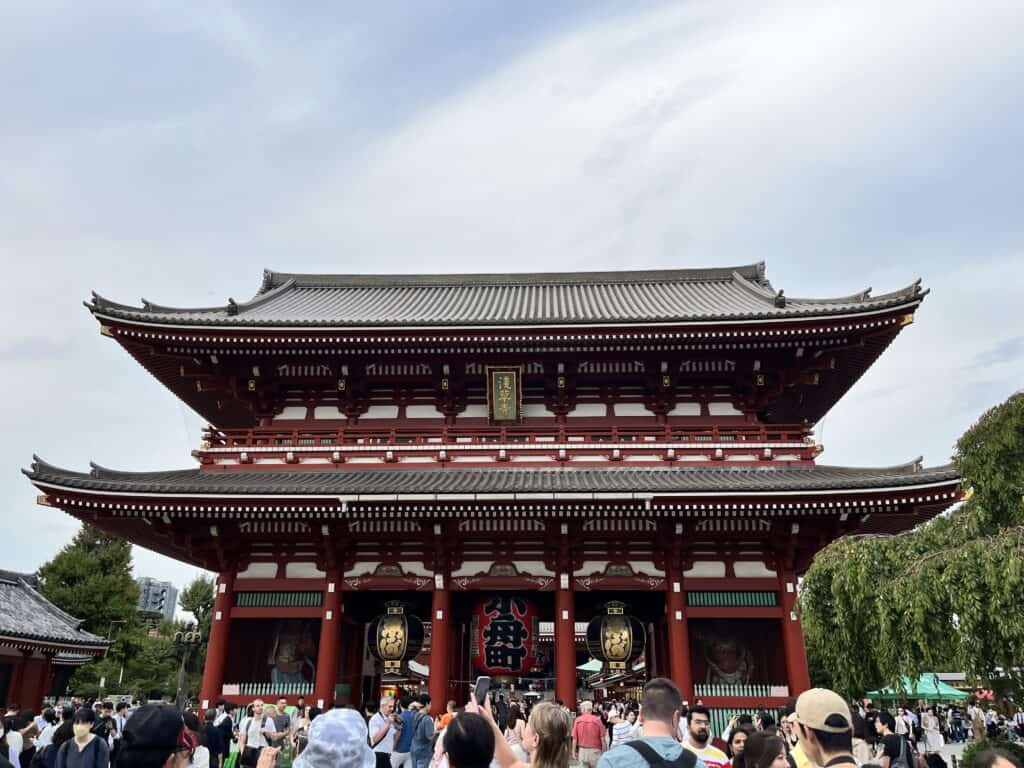
Main Hall and Asakusa Shrine: It’s Gettin’ Holy in Here
After navigating through the Nakamise street you’ll reach the main highlight; the Main Hall and Asakusa Shrine. It’s a place where locals gather to pray. You can immerse yourself in its spiritual atmosphere. Drop a coin make a wish. Who knows? Maybe the gods will lend an ear.
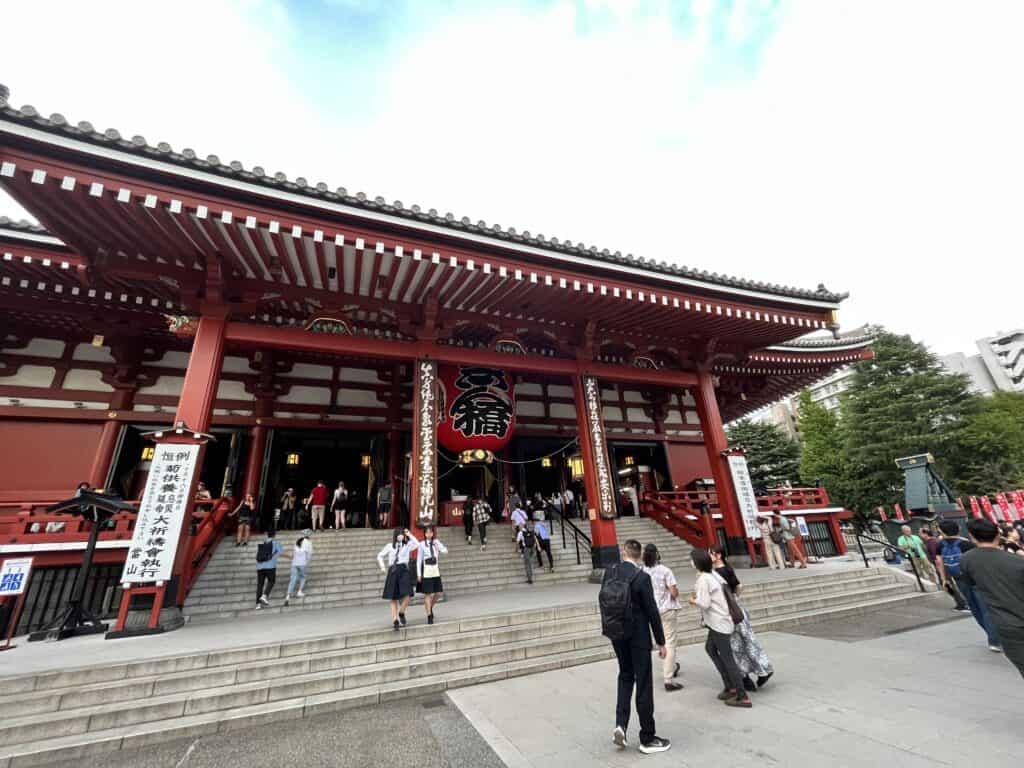
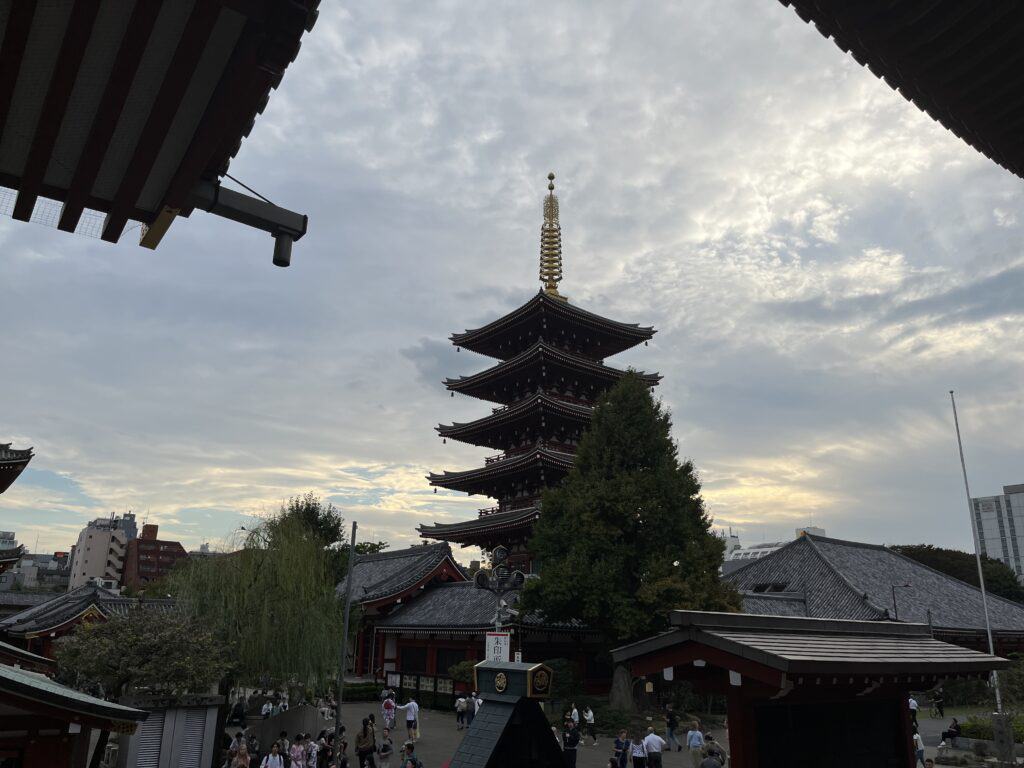
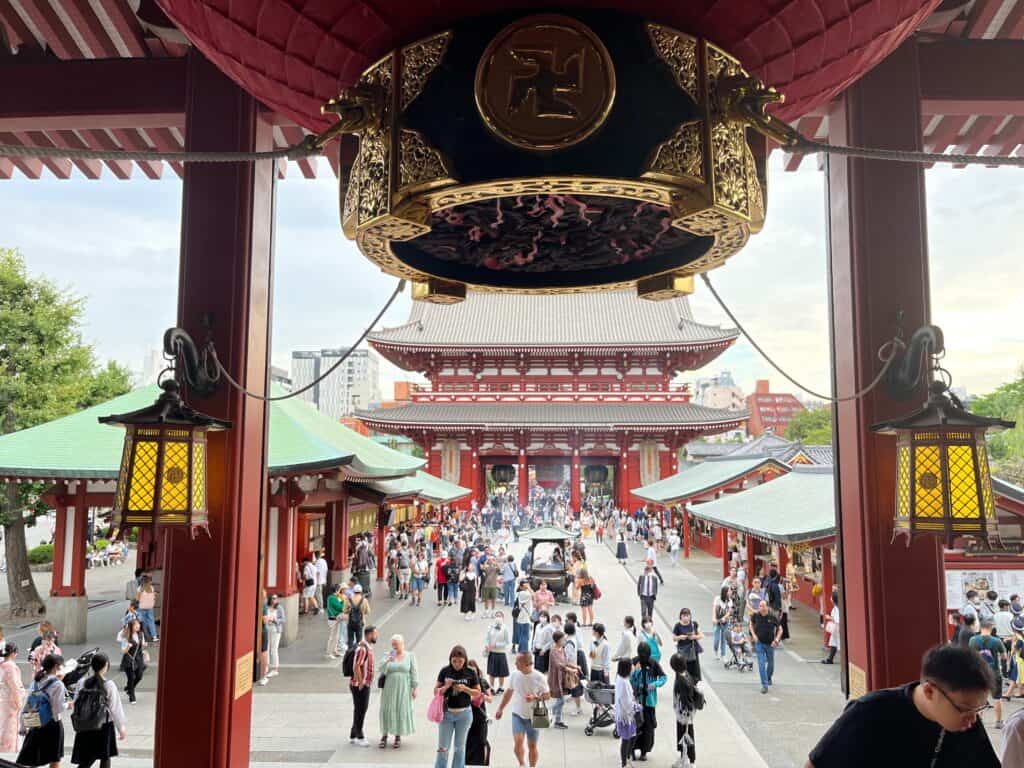
Making a wish at Asakusa Shrine or any Shinto shrine, in Japan for that matter is an traditional practice. Here’s a step by step guide on how to make your wish at Asakusa Shrine, located next to Senso ji Temple:
- Purification: Before approaching the shrine you’ll come across a purification fountain, near the entrance. Take one of the provided ladles fill it with water and cleanse both your hands. Then transfer some water into your hand rinse your mouth gently and spit the water beside the fountain without returning it. This ritual purification is called ‘temizu’.
- Approaching the Shrine: Walk towards the shrine with an air of respectfulness. It’s customary to bow as you approach as a gesture of reverence.
- Making an Offering: When you visit the offering hall drop a coin into the collection box. Coins that have a hole, in the center like the 5 yen coin known as ‘go en’ (which also symbolizes ‘good luck’) are considered fortunate for making wishes.
- Bowing and Clapping: To show respect after making your offering bow deeply at the waist twice. Then clap your hands twice at chest level. This gesture is believed to summon the kami or Shinto deities allowing you to convey your wishes.
- Making Your Wish: Once you have clapped, keep your hands together in front of your heart. Close your eyes. Take a moment to make your wish or offer a prayer. Be genuine. Focus on what you desire.
- Final Bow: After completing your prayer or wish bow deeply more before stepping from the shrine.
- Respectful Departure: As you leave it is customary to walk for a steps before turning away from the shrine especially if its not crowded. This shows respect as you depart.
Remember that while these rituals are traditional what truly matters is the sincerity behind each action. The peaceful ambiance of Asakusa Shrine aims to provide visitors with a tranquil moment, amidst the city life. So take your time to immerse yourself in this atmosphere and reflect on your visit.
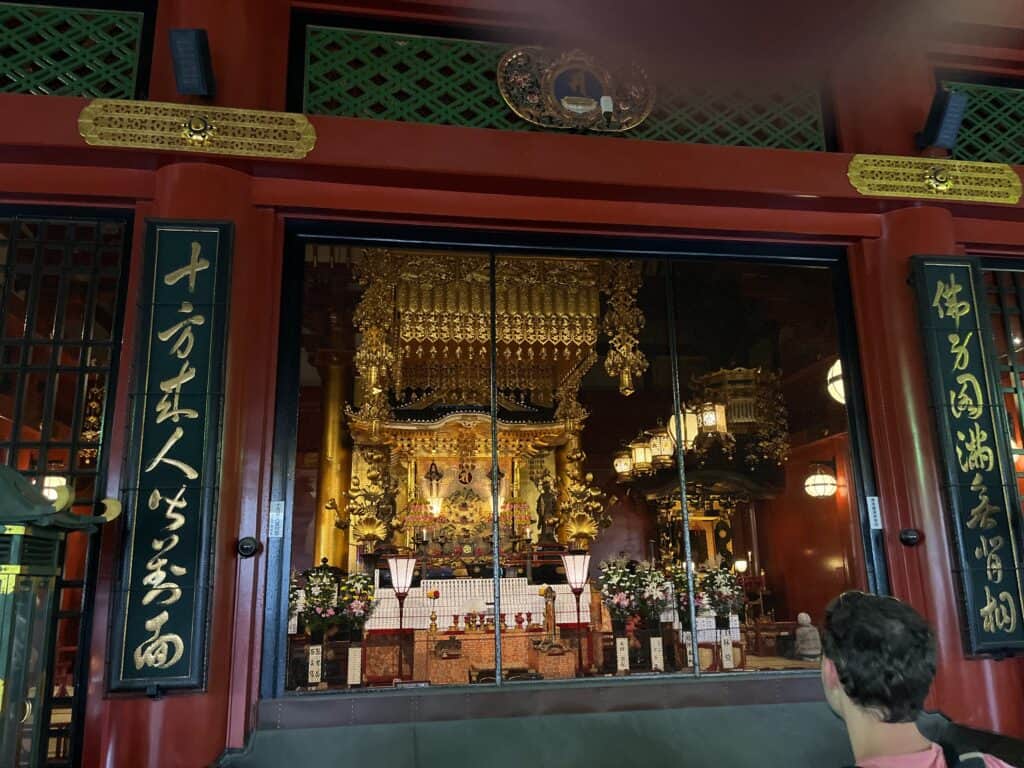
Get Your Fortune Told, Tokyo-Style
Make sure to visit the omikuji stands. You can get a piece of paper that predicts your fortune for a few yen. If the fortune is positive celebrate! If its negative simply tie it to a rack. Move away, from any bad vibes.
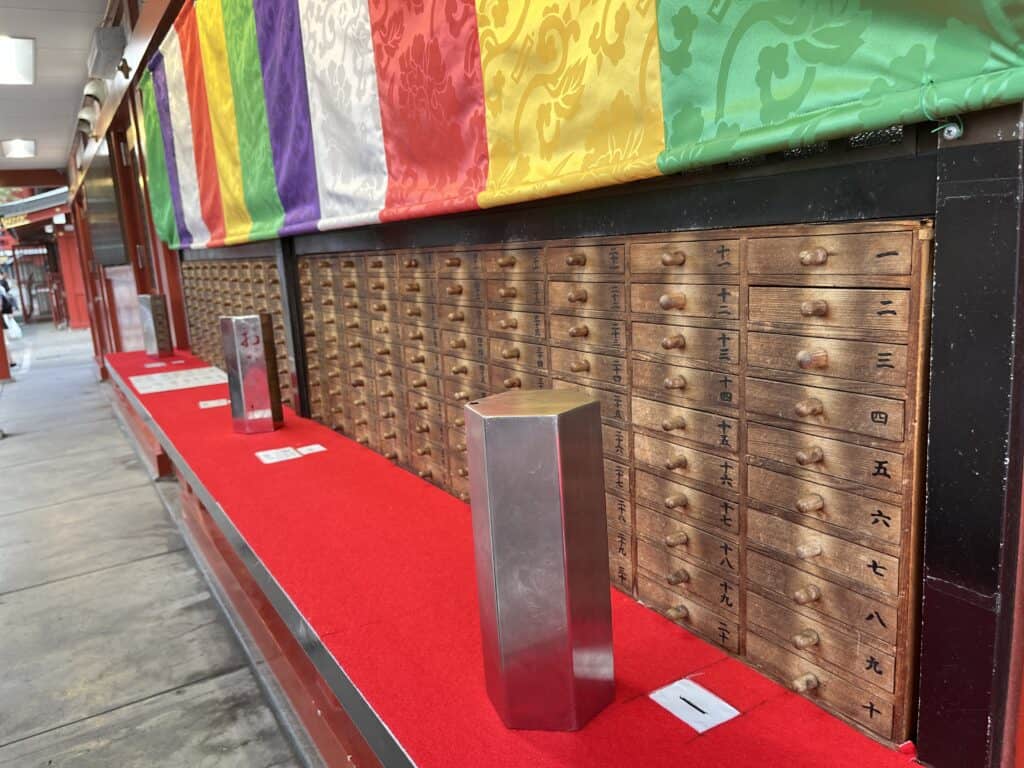
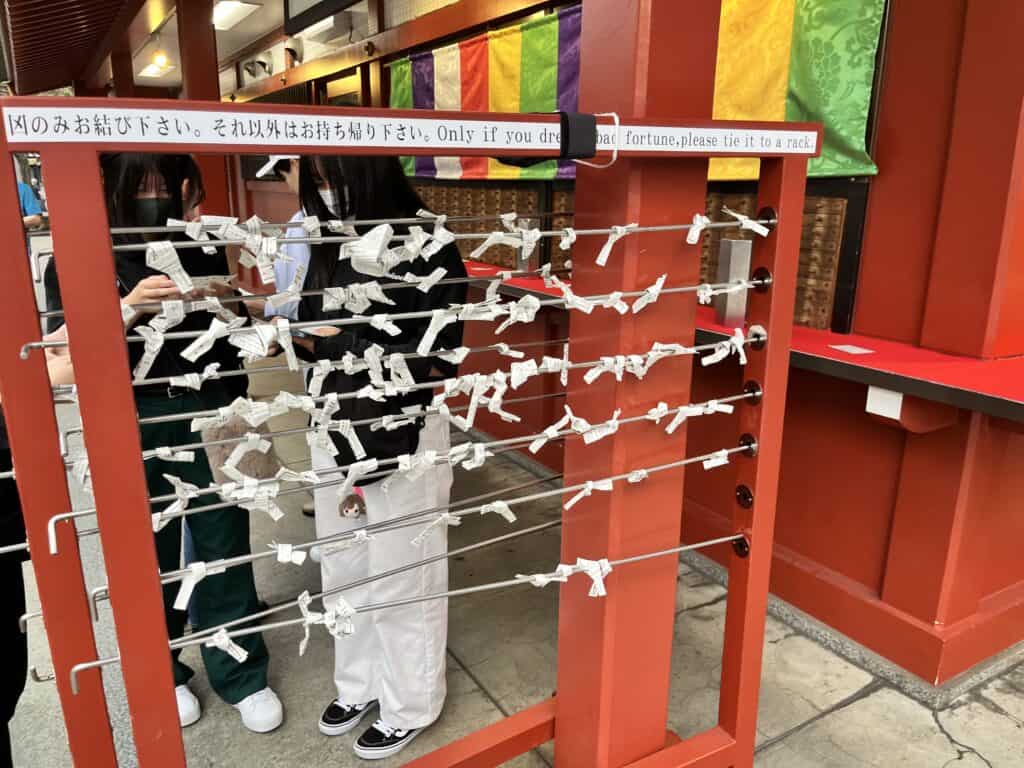
Pro Tips to Make the Most of Your Visit
- Stay Calm: As it is a place please keep the noise level low. Be respectful to the worshippers.
- Capture Moments: Feel free to take plenty of pictures but inside be mindful of the no camera policy. Avoid taking photos where it is not permitted.
- Dress Appropriately: You don’t have to go out in attire but its advisable to avoid wearing shirts with offensive or inappropriate messages.
- Avoid Peak Hours: If you prefer not being crowded it’s best to avoid visiting during festivals. However if you enjoy the festivities by all means join in!
- Indulge in Local Cuisine: Asakusa offers a variety of food options. Treat yourself to delicious tempura that will leave you in awe or savor some slurp soba like a pro.
Beyond the Temple: What Else, You Ask?
- Sumida River Cruisin’: After immersing yourself in temple activities why not unwind with a boat ride down the river? It’s akin to pampering your soul at a spa.
- Tokyo Skytree Lookout: If you’re feeling high on life, get even higher at the Tokyo Skytree. Prepare yourself for awe inspiring vistas. The views are bananas.
- Back to School at the Tourist Center: Make sure to stop by the Asakusa Culture Tourist Information Center for insights, into customs and attractions. They have an observation deck and the people there can give you insights, about the area.
Stuff You Gotta Know Before You Go
- Lost in Translation: It’s helpful to familiarize yourself with some phrases or use an app for assistance. Asking “Where is the toilet?” (” wa doko desu ka?”) might come in handy.
- Cash is Important: Many local stalls and shops in Asakusa prefer cash payments so make sure you have yen to cover your expenses for the day. ATMs can be a bit hard to find in this neighborhood. You wouldn’t want to be without cash when you find that souvenir.
- Stay Connected: Consider renting a pocket Wi Fi or getting a SIM card. Trust me Google Maps will be your companion while navigating through the maze streets of Asakusa.
- Mind Your Manners: Remember, this isn’t like the Wild West. When someone hands you something receive it with both hands as a sign of respect.
- Footwear Etiquette: If you enter a place with tatami mats remember to take off your shoes. Wearing socks is preferred unless you want to showcase your toe separating skills.
- Relaxation. Accommodation Options: Feeling exhausted, after exploring all those temples?Asakusa offers a variety of cafes where you can recharge with a cup of coffee and perhaps indulge in a treat or two. If you’re seeking accommodation, in the area you’ll find options ranging from hotels to ryokans allowing you to embrace tranquility.
Wrapping It Up at Senso-ji
Concluding your visit at Senso ji Temple is truly special. As the day comes to a close. The lanterns begin to illuminate take a moment to stand there and absorb it all. The bustling sounds of the city the chants resonating from within the temple and the laughter echoing through the streets encapsulate Tokyos essence.. Here you are, in its vibrant heart.
Whether your quest is for enlightenment exploring wonders or capturing breathtaking photographs Senso ji Temple caters, to all your desires. It’s not a tourist attraction; it represents a slice of Tokyos soul. Take your time to immerse yourself in its ambiance and don’t hesitate to wander off the beaten path – sometimes that’s where you discover stories worth sharing.
Until we meet again on another adventure may your travels be extraordinary. Leave gentle imprints behind!

